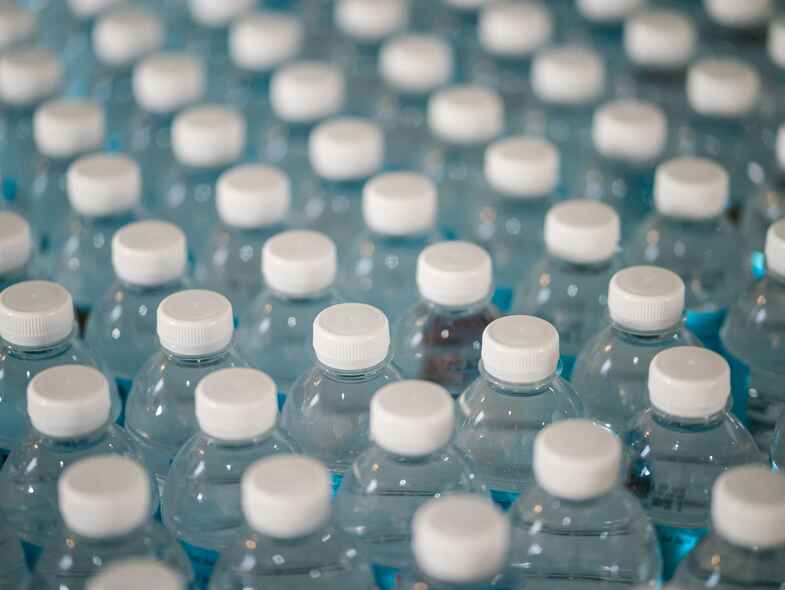Photography by Jonathan Chng
Being sustainable and looking after our planet doesn’t have to be difficult or come at a high cost. Here are six things that you can do today that will make a difference to our tomorrow.

Photography by David Clode
Plant A Garden
With spring finally here and much more inviting weather on the way, now is the ideal time to start growing your own fruits and vegetables. There are many well-known benefits to starting your own garden, from adding value to your home to improving your mental health, but it’s also great for the environment. Put simply, the more produce you grow for yourself, the less you buy, meaning fewer carbon emissions and less environmental impact. Before you grow or plant anything, be sure to do your research to check the food, sun and water requirements. You’ll get the best advice from your local garden store or nursery, or head online for articles, blogs and videos.

Photography by Somi Jaiswal
Buy Local
If gardening isn’t for you, then the next best way to improve your carbon footprint when it comes to food is to buy locally sourced produce. This is as easy as visiting your local farmers market rather than shopping at a large supermarket chain. In Canberra, you’ll find the Capital Region Farmers Market at Exhibition Park. Expect to find over 100 stalls showcasing the region’s freshest produce including fruit, vegetables, seafood, meat, baked goods, wine, cheese, and more. At the South Coast, the award-winning Sage Farmers Market in Moruya is where you’ll find locally grown and harvested food from the region’s farmers and producers, including fresh meat, fish, vegetables, bread, honey and milk.

Photography by Alexander Schimmeck
Avoid Fast Fashion
Did you know the fashion industry is responsible for about 10% of annual global greenhouse gas emissions? Unfortunately, the world’s love of fast fashion comes at the detriment of the environment, so if we want to help the planet and contribute to an ecologically and socially responsible clothing supply chain, then we need to get more life out of our wardrobe. Before you go and buy something new, consider second-hand or vintage clothes, or clothes made from natural fibres, or rent or borrow clothes for special occasions. If you can, repair clothes where possible and always donate old wares to charity to keep the cycle going.

Photography by Ethan Bodnar
Reduce Electricity
There are many ways to be smarter and more sustainable with your household energy in order to help the planet. One of the easiest ways to make a change is by switching off appliances at the wall when they’re not in use, as they will still use energy even if the switch is turned on. Although we can’t completely avoid using electricity, we can make sure our appliances are energy efficient, so opt for electricals and lighting with a high energy efficiency rating, and be smart when using large appliances, such as turning on the cold cycle when washing clothes and drying clothes on the line instead of in the dryer.

Photography by Artem Beliaikin

Photography by Vladimir Mokry
Say No To Plastic
According to WWF, less than 13% of plastic is recycled in Australia, and while this number is improving slightly year on year, there is still a lot of work to do. While our governments implement new rules around plastic use, we must do our part too. Be sure to avoid single-use plastics including bags, straws, plates, cups, bottles, cling wrap, razors and toothbrushes, and buy long lasting and biodegradable options instead. There are so many sustainable alternatives available at good prices, so there’s no excuse not to do the right thing by the planet.

Photography by Naja Bertolt Jensen

Photography by Phi
Reuse And Recycle
We all know that recycling is important for the environment and it couldn’t be easier to do when we have our very own household waste and recycling bins, as well as regular collection services. When it comes to broken electronic items and whitegoods, try to prolong their life by getting them repaired before throwing them away. Some charities, private recyclers and retailers will repair and recycle your items, or sell them for parts, so search for one in your local area. Likewise, some manufacturers of coffee pods, batteries, computers and ink cartridges have their own recycling and trade-in programs.

Photography by Nareeta Martin
Enjoy this complimentary magazine, become inspired and find endless possibilities for your own inspired living.
To read the e-brochure click here.





